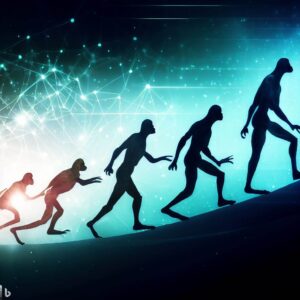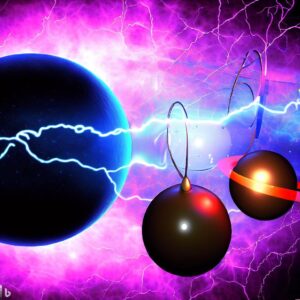Is it real that God exists, or are we just projecting our insecurities and fantasies onto Him?
We talked previously about ideologies. Here is an opinion about Faith and Reason in science. There is a wide variety of narratives and frameworks from which to choose. Evidence gleaned from experiments is the fuel that propels science forward, as is the falsification of existing ideas and the subsequent replacement with newer, more promising ones. Faith, inspiration, paranoia, and other subjective experiences form the basis of different systems, such as religion, nationalism, and the creative arts.
*****
Interactions between evidentiary and experiential narratives occur frequently.
For instance, religious faith motivates some researchers who see their work as a way to “snoop on God’s cards” and become spiritually closer to the Almighty. Pursuing scientific endeavours, for instance, is both a source of and a boost to national pride. It is not uncommon for scientists to bend the truth to back up racist or nationalist statements.
Objects’ impacts on their surroundings are universal story elements. In this regard, God is equivalent to subatomic particles like electrons, quarks, and black holes. Only by their consequences can we infer the existence of any of the four concepts.
Indeed, the influences of God are only seen in the areas of society and the mind (or the pathologies of the mind). However, this limitation is in no way indicative of the “unreality” of God. The existence of God as a hypothesis is consistent with the norms of scientific theory development since it provides a unifying framework for explaining a wide range of seemingly disparate occurrences.
God’s supposed existence is obviously and solely postulated by believers. Once again, though, that doesn’t make Him any less real. What we think is just as real as what exists “out there.” The lines between epistemology and ontology have begun to blur.


Is it real that God exists, or are we just projecting our insecurities and fantasies onto Him?
How well our models describe and anticipate phenomena is how we determine their truthfulness. The existence of God (in people’s perceptions) accomplishes both of these goals. For instance, if we assume God exists, we can foresee how many believers will act. Therefore, (in this formal and rigorous meaning), the existence of God is undeniable.
But is God more than just a concept in human minds? Is He something apart from the opinions of those around Him? Even if every living thing were to perish in a cataclysm, the Sun would continue to revolve as it has since the beginning of time.
Would God still exist if every living thing on Earth were to perish in a catastrophic event? Would God still exist if all living things, including humans, suddenly stopped believing in Him? Does a God “out there” motivate religious people to have faith?
Even though the Copenhagen interpretation of Quantum Mechanics opposes this, what is known does not depend on the presence or absence of observers. The very existence of believers is necessary for anything to believe in.
The Sun’s existence is not in question. The existence of God is unknown to us. We accept the existence of God on faith, but we have no way of knowing whether or not God exists.
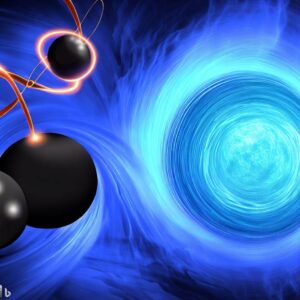
We can construct tests to disprove (show to be incorrect) the existence of electrons, quarks, and black holes (and if these experiments fail, demonstrate the existence of these particles). We can also create experiments to demonstrate the existence of electrons, quarks, and even black holes.
However, there is no way we could ever devise an experiment that would disprove the existence of a God that exists independently of the brains of believers (and if the experiment failed, it would indicate that God exists “out there”). Furthermore, we are unable to devise a single experiment that would demonstrate God’s existence outside of religious believers’ imaginations.
Evolution

The “argument from design” raises questions. There must be a supreme intelligence, the world’s designer and creator, who some call “God,” because the universe is intricate and varied. However, contemporary scientific hypotheses like evolution and the big bang can adequately explain the world’s wealth and diversity. Including God in the calculations is unnecessary.
However, God could be to blame for everything. Our inability to devise even a single experiment to disprove the hypothesis that God created the universe (and, if that experiment fails, demonstrate that God is, in fact, the world’s creator) is the root of the problem. And we can’t think of a single experiment that would provide conclusive evidence that God created the world.
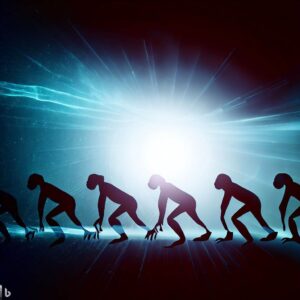
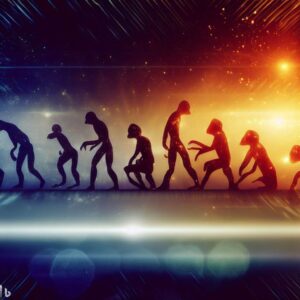
James Webb: you got it all wrong!
However, we may devise various experiments to disprove the scientific theories that explain the origin of the Universe (and, in turn, offer enormous credence to these ideas if these experiments fail). There are scientific ideas on how the universe came to be, and we may create experiments to test them.
This in no way implies that these theories are unalterably correct. No, they are not. These scientific hypotheses are only partially correct, and as we learn more through experimentation, they will inevitably evolve. Newer, more accurate scientific theories will eventually replace the ones we currently use, as the recent discoveries of the James Webb telescope prove. However, all scientific hypotheses in the future will be open to testing and refutation.
Belief and understanding don’t mix. They’re not compatible with one another. Neither knowing anything nor believing anything will lead to learning anything. Belief can lead to firm convictions or passionate viewpoints. However, faith alone cannot lead to understanding.
Despite this, there are both verifiable and speculative realities. The former exists in the real world, whereas the latter exists solely in our heads. But that doesn’t make them any less genuine.



